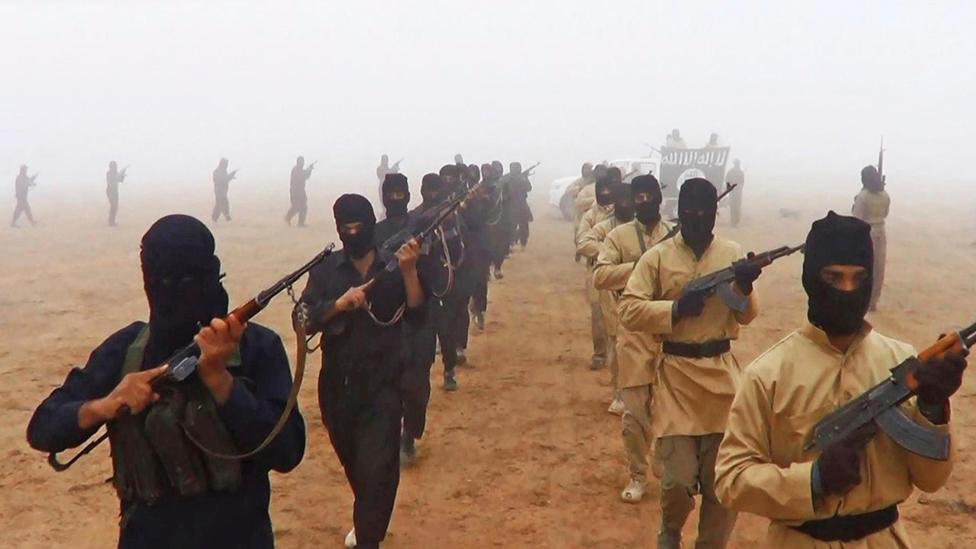Key IS leader Saad Emarati 'killed in Afghanistan'
- Published

Saad Emarati was one of the founders of the IS group's branch in Afghanistan and Pakistan
A key commander with the Islamic State militant group has been killed in a military operation in Nangarhar, Afghan security forces say.
Saad Emarati was one of the founders of the IS group's Afghanistan-Pakistan branch, and led several attacks against the Taliban and the government.
Afghan officials say he was one of about 120 suspected militants killed in an operation in Kot district.
It comes days after a bomb attack in Kabul claimed by IS killed 80 people.
Emarati was formerly a Taliban commander, but switched allegiance to IS following the death of Mullah Omar, the Taliban founder.
Analysts say he was one of the most important leaders of IS in the region, and that his death, if confirmed, would be a serious setback to the group's ability to operate in eastern Afghanistan.
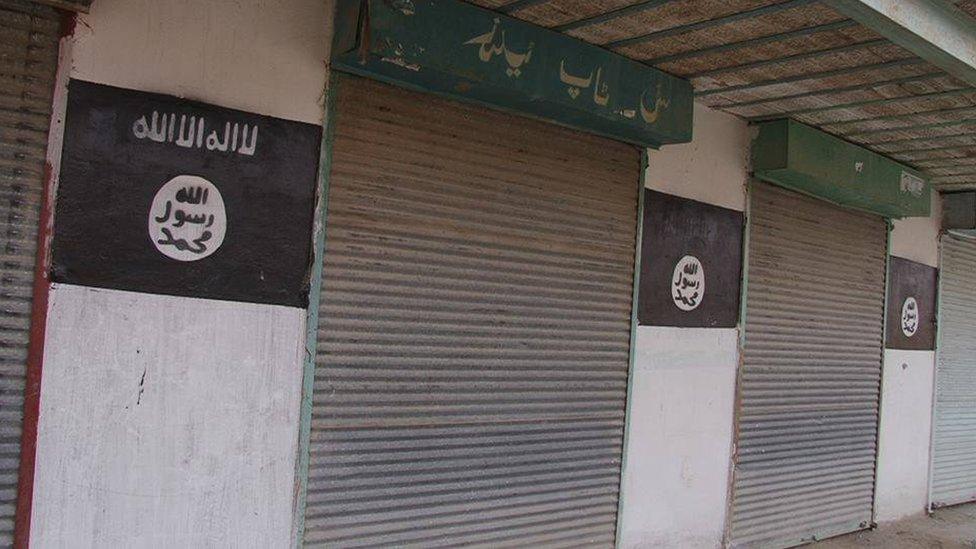
The Afghan military released photos of buildings they seized from IS control in Kot
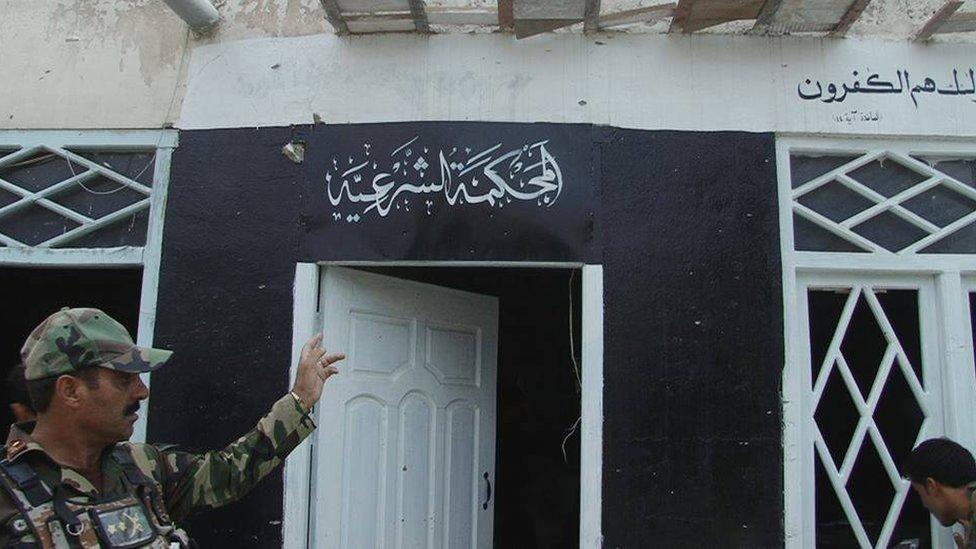
Afghan officials have released photos following the overnight raid in Kot, showing IS courts and recruitment centres seized by the military.
Afghan special forces commander Gen Basmullah Wazari said the operation had received foreign air support.

Who was Saad Emarati? By Dawood Azami, BBC World Service
Emarati was one of the first militant commanders in the Afghanistan-Pakistan region who pledged allegiance to IS's leader Abu Bakr al-Baghdadi.
He was a former Afghan Taliban commander in central Logar province who was sidelined and disarmed by the Taliban leadership for "unauthorised activities" in 2013.
After that, he spent time with the Pakistani Taliban (TTP), and, on 12 January 2015, appeared in a video with two other Afghan Taliban commanders, and nine ex-TTP commanders, pledging allegiance to IS.
Two weeks later, IS announced the establishment of its branch in "Khorasan" - an old name for Afghanistan and parts of neighbouring Pakistan, Iran and Central Asia - and Emarati became one of its most important commanders.
After the IS's Khorasan branch established its base in the eastern Nangarhar province of Afghanistan, Emarati led several attacks against the Afghan Taliban and government forces to expand the new group's control and influence. He was accused of kidnapping for ransom among other actions and was known for his ruthlessness.

The operation is seen as a step up in the Afghan government's efforts to combat IS, following Saturday's deadly bombing in the capital.
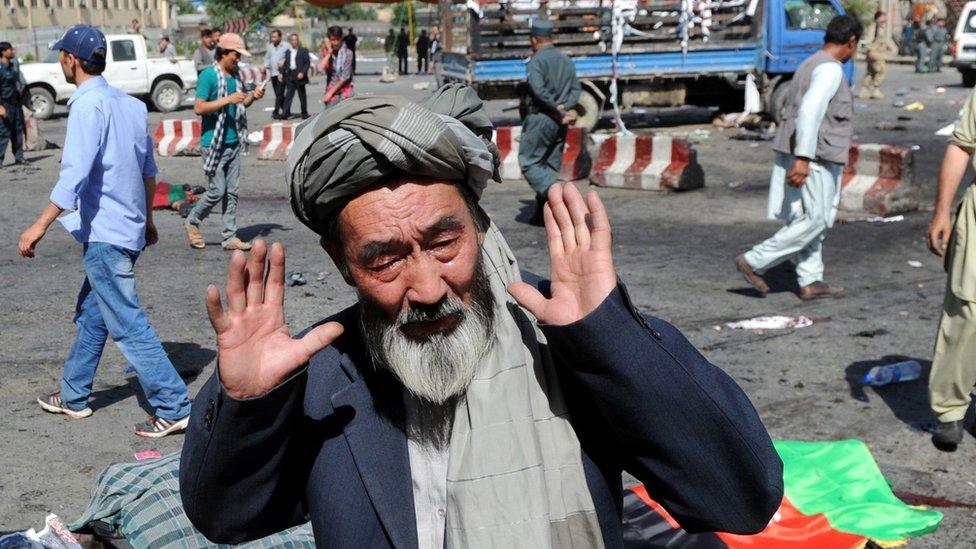
Eighty people died in the attack on a protest march in Kabul on 23 July
Afghan intelligence sources have suggested that the suicide bombers had been sent from Nangarhar province to carry out the attack.
Self-styled IS has a presence in eastern Afghanistan, but had not previously admitted carrying out assaults in Kabul.

War of the militants
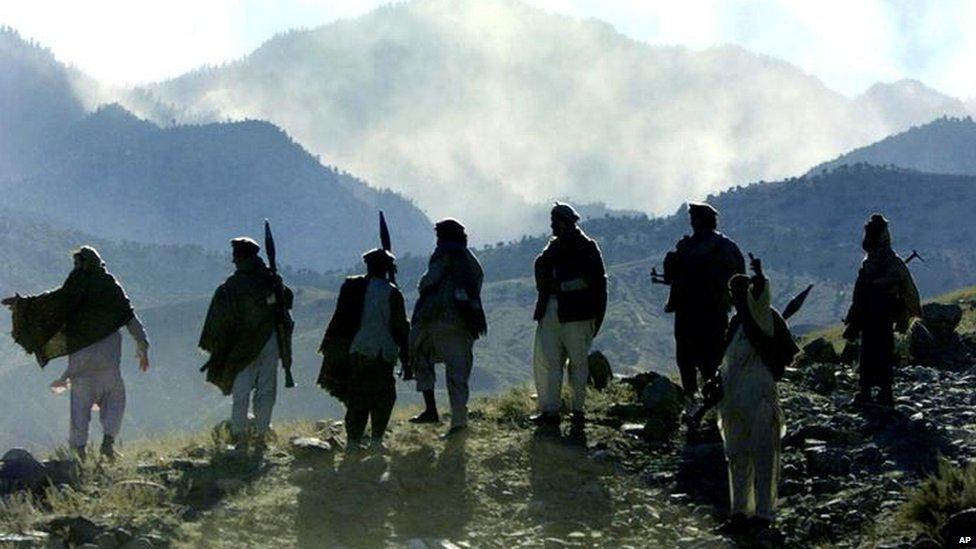
The Taliban and Islamic State declared war on each other in January 2015
The Taliban and Islamic State have been locked in frequent battles in Afghanistan since January 2015.
The Taliban's dominance in a region home to numerous local and foreign militant groups is facing a serious challenge from IS, which has been gaining some support.
There has also been evidence that IS is trying to recruit Taliban fighters, with several Taliban commanders declaring allegiance to IS.
Why Taliban special forces are fighting Islamic State

- Published23 July 2016
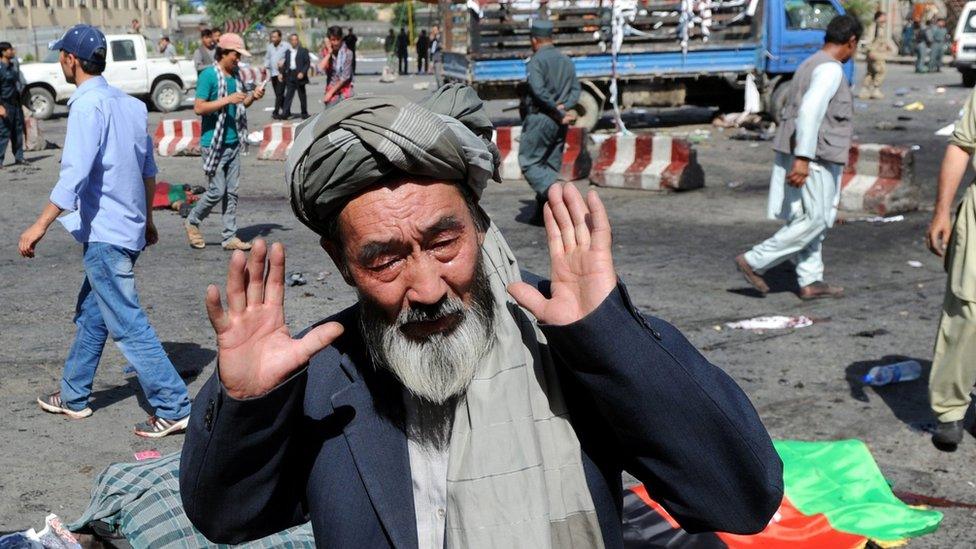
- Published18 December 2015
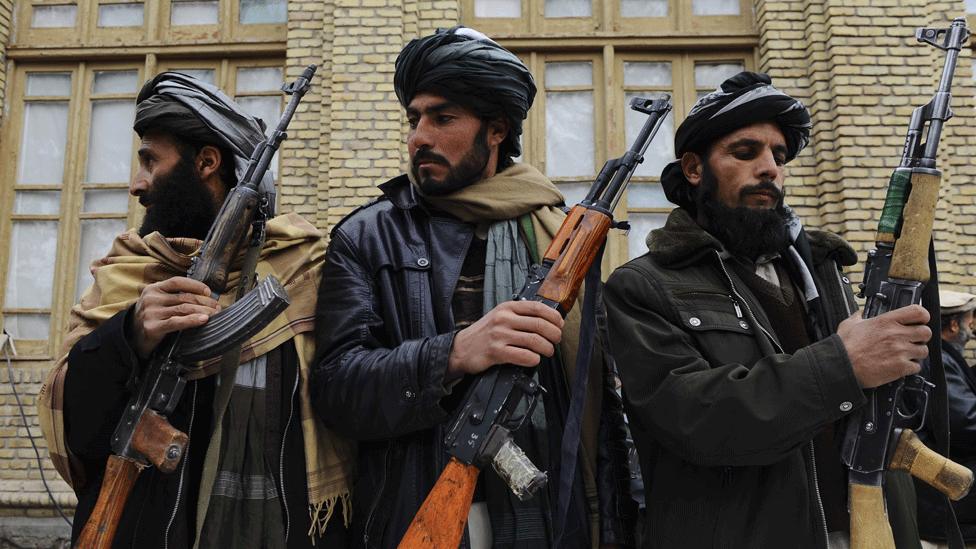
- Published17 October 2017
